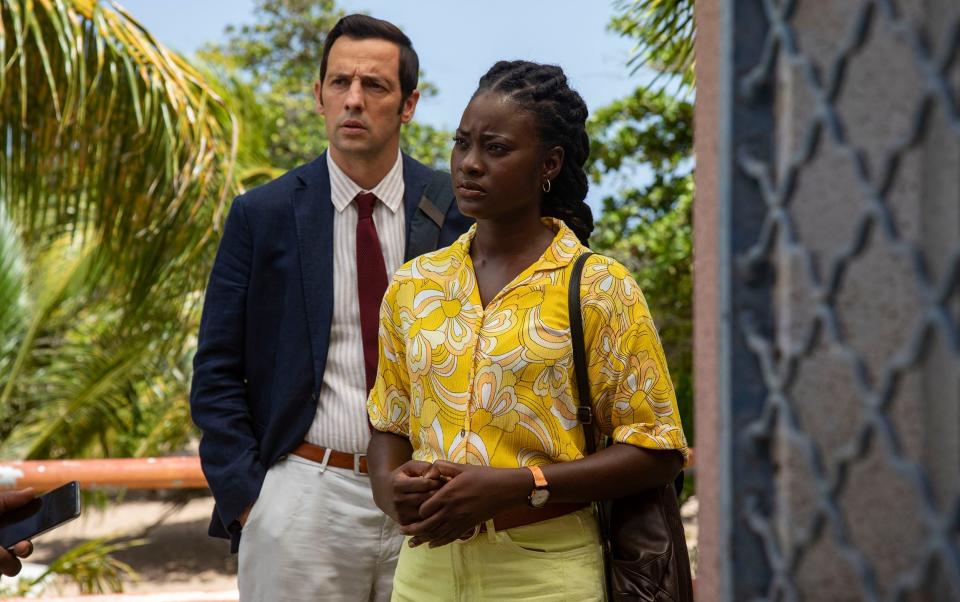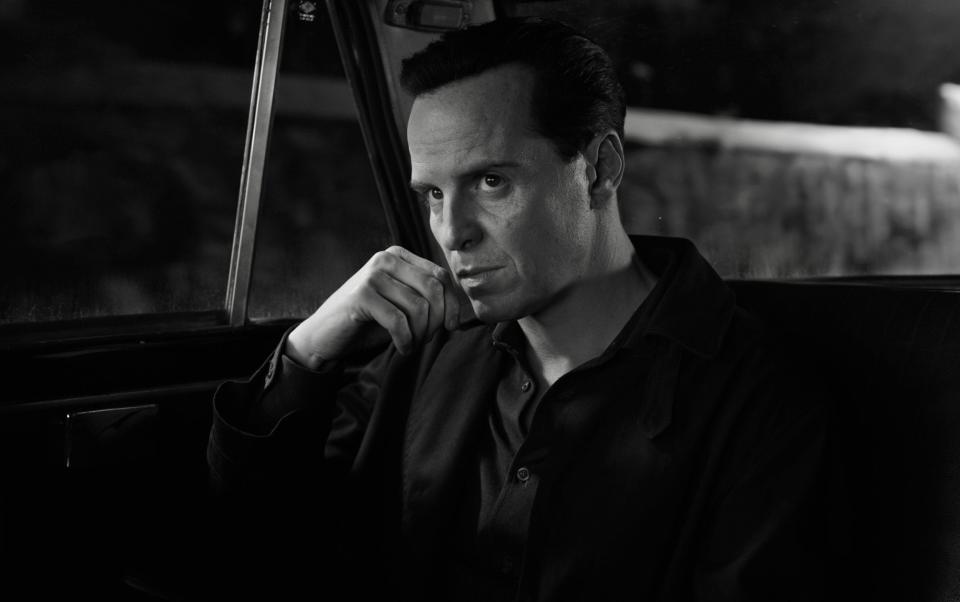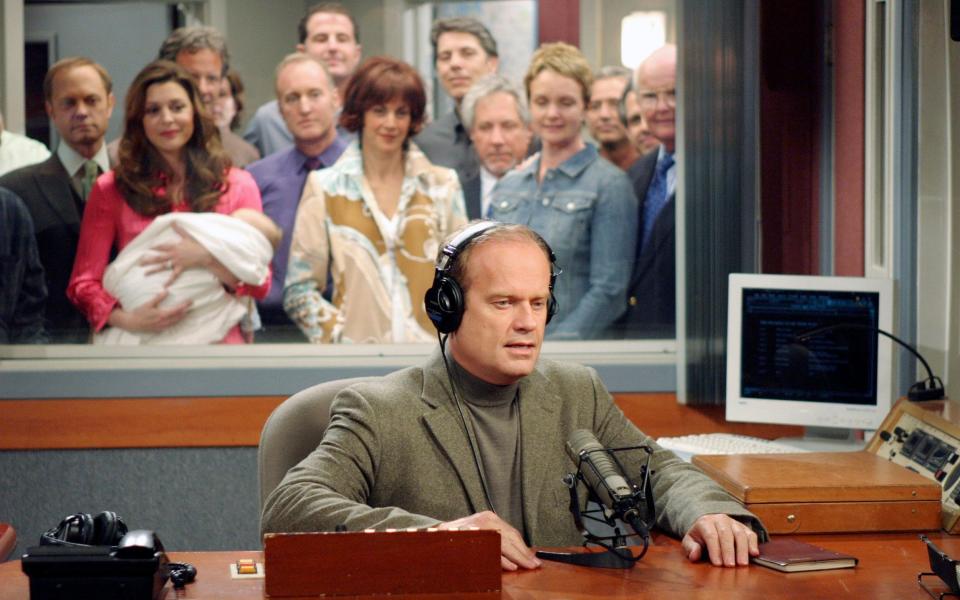There’s too much TV: here’s how to watch without going insane

As a child, I was forever being told “you watch far too much television”. The headmistress at my primary school used to say it. She announced at assembly one morning that she only watched one TV programme a week, and asked us to guess which. She was a deeply religious conservative in her late sixties, so our suggestions of The Six Million Dollar Man and The Tomorrow People were somewhat wide of the mark. It turned out to be the BBC’s staid 1975 adaptation of The Secret Garden.
Incredibly, many years later, when I first started working in television, I still heard this comment from my colleagues. You’d think watching “too much” television would be a prerequisite for working in television, but it seemed not.
I can understand this criticism. It is a slightly more polite way of telling somebody that they are under-socialised, that they are living unwisely at a remove from the real world. “You’ll get square eyes” was merely the 20th-century update of the “reading fever” moral panic of the 1700s, which followed the advent of mass market novels.
But I haven’t heard this criticism, of myself or anybody else, for a long while now. Watching large amounts of TV has finally become socially acceptable. The golden age of the streaming service – or “Peak TV” – has made obsessive TV-watching an acceptable pastime on a par with cinema-going.

People aren’t necessarily watching more television – EastEnders often attracts only 2 million viewers, where once it got 22 million – but we talk it about it a lot more. There is a buzz and a social cachet about watching and recommending new shows – at least the high-end shows emerging from the streamers. (Death In Paradise gets 7 million viewers a week on terrestrial, but nobody will bore you down the pub by insisting that you watch it.)
Social media is crammed with people raving about Slow Horses or Succession, despite their tiny watching figures. “I made it to the end of season seven of such-and-such a show”, you’ll often hear people say, as if they’ve just bravely limped to the finish line of a marathon.
And here I have to admit to the grossest hypocrisy, because now it’s my turn to tut and shake my head: You all watch too much television.
Television’s role has changed totally, and so has its attitude to the viewers. It used to feel obliged to soothe and cheer you; to provide a bit of pep after a long day at school, at the factory or the office. Now it wants to simultaneously disorient you with troubling subject matter – endless murders and cults and abuse and injustices – and bore you with it. Today it wants you to feel obliged to watch it.

Let’s take a recent example. Netflix’s adaptation of Patricia Highsmith’s The Talented Mr Ripley is in eight parts, and it only covers the first book in the series – the same events that the 1999 film managed to cover very adequately in 139 minutes. The Netflix series took 444. This “streaming bloat” can be hellish. I recently rewatched the sedate historical romance Flambards from 1979, and more happened in episode one than in the entire run of The Queen’s Gambit.
Are people even taking in the huge volume of slow-moving “significant” stuff that they’re watching? A friend of mine recently confessed that they were five episodes into a series when they realised they’d watched it before. It washes over you. Unlike a book, you can “watch” TV and fiddle with your phone.
The ease and ubiquity of the new TV delivery method debases its own value. YouTube is experimenting with a “jump ahead” feature – which can take you to what AI guesses is the juiciest bit of any video. TV surely won’t be far behind. The scientific research on attention spans is misty and often contradictory. But from an empirical standpoint, what I notice in myself and others is a tendency to multi-screen and not to pay full consideration to what you’re watching – no matter how brilliant or critically acclaimed it is.
We need to find a way to watch mindfully. By reducing our intake we can actually watch more – and better – TV. And I mean watch TV – not keep a third of an eye on it as it drifts by us.
But fear not! I have the answer – curate your own schedule. Become your own listings magazine. Watch TV like you used to, before streaming came along. Hear me out…
If you are to watch Shōgun, for example – and it’s interesting to note that Disney+ premiered it in weekly doses, as is increasingly common – then you must set aside Wednesday night at 10pm for the newest episode. There must be no carrying on to the next episode, however thrilling the cliffhanger, however simple it is to click the little box to “play next episode”, or to let it instantly appear by itself in seconds. Discipline is essential.
I’ve found that this eccentric routine has re-enlivened my love of TV, and made me appreciate what’s on offer so much more. You will find you concentrate your viewing to only the best, and cut down on the slow chaff. I had totally forgotten the fun of waiting – of having a week in which, in your idle moments, you can wonder what’s going to happen next. There is also the joy of anticipation – “It’s Shogun night tonight!” – which can help you during a stressful working day.

Now, this must be done alone or with a partner. (Children are ungovernable in this regard and must be excluded.) Virtual lockdown-style viewing “parties” are a terrible idea and are banned. Streaming has killed the mass mutuality of viewing anyway, and I’m afraid there’s no way around that. You will obviously have to avoid spoilers online – mute the words of the titles you’ve picked.
You must concentrate fully. That means phones off and put in the kitchen. You can discuss it with your other half afterwards if you must. You may pause for “advert breaks”, yes – but in the style of ITV in the 1970s, only for two minutes. That is the only acceptable pausing.
If you’re doing something else on the night in question you are allowed to skip the episode and watch it the next week. On no account must you slip it in the day after. That is a slippery slope and before you know it you’ll be back where you started.
You’ll find you start to enjoy your viewing so much more, I promise you.
Gareth’s current viewing schedule
Being your own scheduler enables you to line up what suits your taste, and will force you to be more thoughtful and selective. You need balance and variety. Now in my current schedule I’ve got a blend of old and new. Remember, the entire historical panoply of TV is open to you.
Monday
7am Every weekday morning, I blast myself cheerily into the day with a rotating schedule of uplifting classic American sitcoms. Frasier (Paramount+), Friends (Netflix) or Seinfeld (Netflix) – something to remind you that the world is a reasonable place, or can be. At 20 minutes a pop, these will have the advantage of putting you in a good mood. Only afterwards are you allowed to check the news.
6pm Monkey (ITVX) – Captivating Japanese adventure series. Frothy fun for teatime.
9pm The primetime slot is for prestige drama, such as Masters of the Air (Apple TV).
Tuesday
10pm Slow Horses (Apple TV+)
Wednesday
6pm Sorry (ITVX) – All seven series and 42 episodes of Ronnie Corbett’s terrifying mother-smother 80s sitcom saga have just landed on streaming. Perfect tray-on-lap teatime viewing.
10pm Shōgun (Disney+).
Thursday
9pm Hapless (Amazon Prime Video).
Friday
2pm Aunty Donna’s Big Ol’ House of Fun/Coffee Cafe (Netflix) – Silly Australian sketch series that will give you a bigger lift than the standard daytime fare.
9pm The White Lotus (Now).

Saturday
6pm Doctor Who (iPlayer) – Pick a series from the 1960s or 1970s and watch it as nature intended: 25 minutes at Saturday teatime as a daft and delicious titbit.
9pm One Day (Netflix).
Sunday
9pm Death in Paradise (iPlayer) – When it should obviously be scheduled on terrestrial anyway.
10pm Banish Sunday night blues by saving your most treasured warming treat for this slot. You’ll want a very agreeable British show – along the lines of To the Manor Born (iPlayer), The Madame Blanc Mysteries (Amazon Prime Video) or Miranda (iPlayer).

 Yahoo Sport
Yahoo Sport 





































